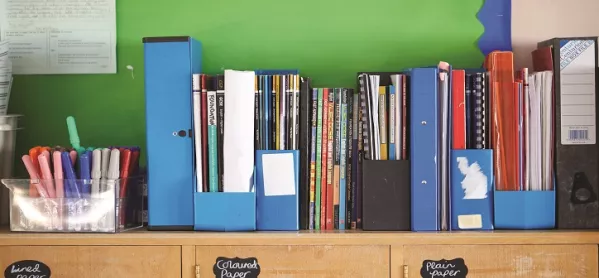Teacher effectiveness is the most important driving force behind pupils’ success, but there is limited evidence on how to improve it, a leading academic has concluded.
In a blog post published today, Simon Burgess, a professor of economics at the University of Bristol, explains that while teacher effectiveness is highly important for pupils’ outcomes, there is little good evidence on how to improve teachers’ skills.
Opinion: Teacher training: how to be more effective
Pedagogy: 5 ways to be a more responsive teacher
Further reading: Why reliability is the key to great teaching
His blog draws on one estimate that suggests that replacing the least effective 8 per cent of teachers in the US would boost the country’s economy by $100 trillion.
And he points out that teacher effectiveness has consistently been shown to improve pupils’ grades and raise their earnings over the long term.
How can we make teachers more effective?
Furthermore, measures of teacher effectiveness were largely not influenced by the relative motivation or prior attainment of a class. “Standard estimates of teacher effectiveness seem reliable and not to suffer from bias related to pupil selection,” he says.
Professor Burgess drew on studies that defined teacher effectiveness as the average academic progress made by their pupils over time, measured through standardised test scores.
However, despite this, Professor Burgess says that there is “tantalisingly” limited evidence on how to improve teachers’ effectiveness.
“It’s like a kid seeing sweets in a shop window but not being able to get at them!” he writes.
Professor Burgess notes that it is very difficult to predict how effective teachers will be before they are hired - research shows teachers’ own educational qualifications are largely not linked with how effective they are in the classroom.
As it is hard to predict how teachers will perform, one possible method for raising effectiveness from a study in 2010 suggested laying off the least effective teachers after their first year of work, replacing them with inexperienced staff.
“To maximise average value added, about 80 per cent of teachers should be dismissed after their first year,” the study said.
Professor Burgess writes: “Within the assumptions of the study, schools should retain less than half of their teachers after their first year of teaching.
“The fact that differences in effectiveness are large, persistent, and unknowable before hiring, means that even on the basis of one year’s measure, the one-time cost of replacement is worth it to avoid a career-long tenure of an ineffective teacher.”
However, he notes that this suggestion has been markedly unpopular with teaching unions. Other attempts to raise teacher effectiveness; for example, personalised teacher coaching or peer mentoring, seemed to have borne more fruit.
Yet Mr Burgess points out that “studies of these two ideas again struggle to nail down any medium- to long-term effects due to the difficulties in generating data that follow teachers over time and across schools”.
“It is thus challenging to calculate robust measures of their effectiveness.”




